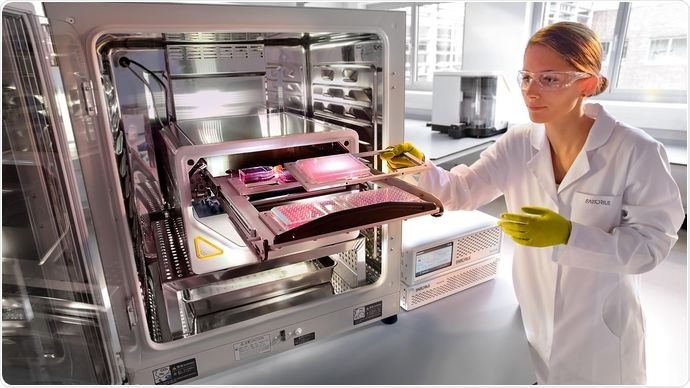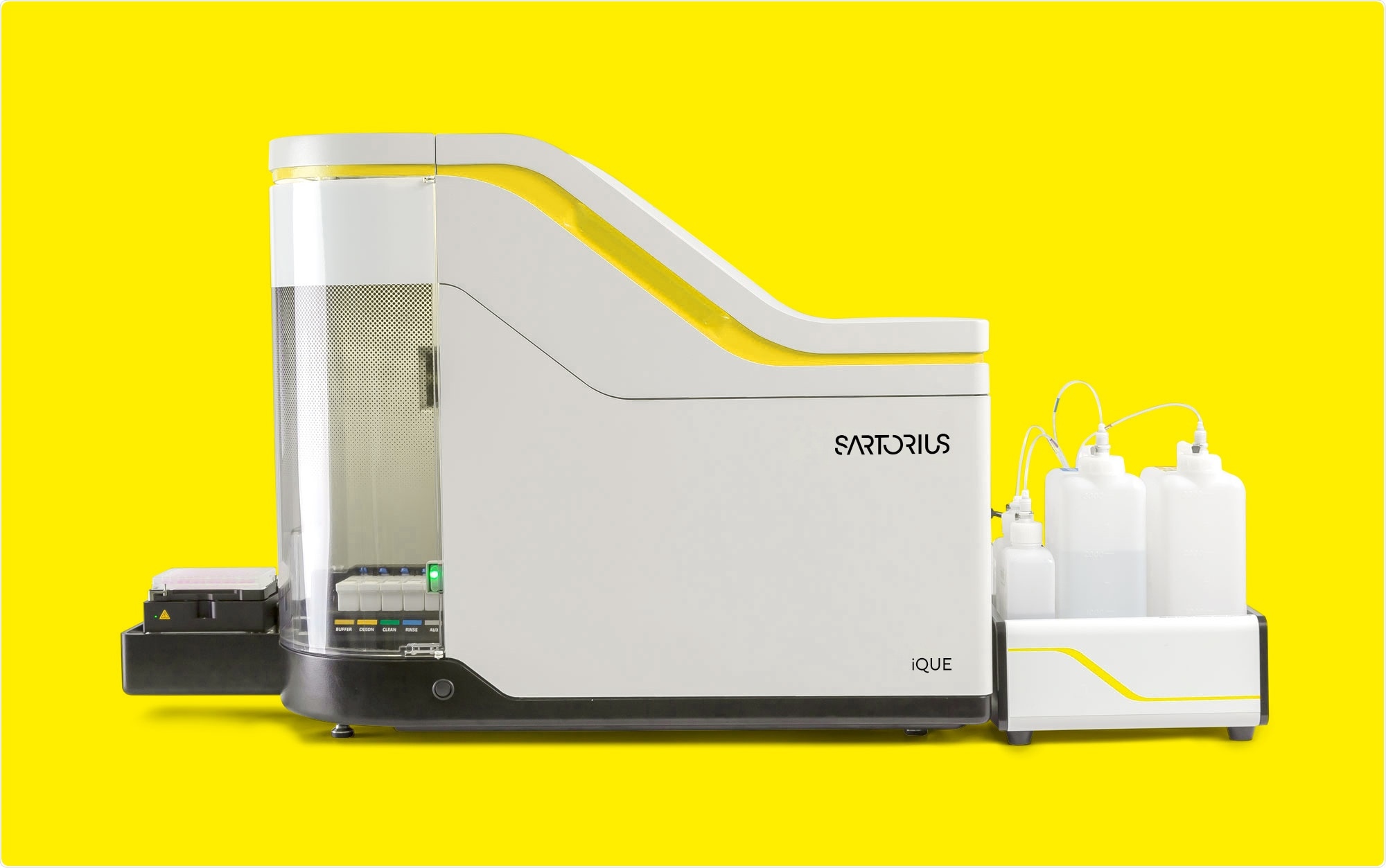Oct 22 2020
Please could you give an overview of Sartorius and the work you undertake in the biopharmaceutical industry?
Sartorius is a leading global company that offers a diverse range of solutions for the Biopharma industry. Sartorius offers the industry products that are used in Life Science research and Biopharmaceutical Manufacturing and allied sectors. These include bioreactors, purification and filtration systems, weighing tools, and bioanalytical technologies amongst other products. Sartorius’s bioanalytical technologies such as the Incucyte® Live-Cell Analysis System, the iQue® Advanced Flow Cytometry Platform, and the real-time label free Octet® Bio-Layer Interferometry (BLI) Systems offer the industry a diverse range of tools for antibody development and characterization beginning from upstream applications all the way to quality control in production groups. Applications include live-cell analysis that provide insights into antibody profiling to receptor-antibody binding affinity characterizations and product manufacturing lot release assay methods.

The Incucyte® Live-Cell Analysis System in use
Please could you explain the development pathway/timeline for novel monoclonal antibodies (mAb)?
The development of a monoclonal antibody involves four main stages; The first stage includes early discovery where the target is identified and validated based on intended purpose and the selection of a lead candidate. The second stage is cell line development where appropriate cell lines that demonstrate desired properties such as high antibody expression and other quality attributes are identified and selected. The third stage focuses on process development and optimization of production conditions together with assessment for scalability and manufacturability. The final critical stage revolves around what’s known as downstream characterization (the assessment of final product properties that include specificity to target, safety, and efficacy, amongst other things). While these are the general stages for development, the assessment of critical qualities of the product and subsequent improvements need to be done throughout the pathway. For a therapeutic antibody drug candidate, the development time varies widely but can take up to 5 years or longer.
What are the most important characteristics for a therapeutic mAb?
Safety and efficacy are two of the most important characteristics of a therapeutic monoclonal antibody. After discovery and development, the antibody drug must be assessed for potency (effective active concentration) and clinical efficacy tests that help assess its effectiveness in the desired environments; in this case human patients. In addition, it must be ascertained to be safe for the intended use at the intended active concentration.
How is Sartorius involved in the discovery and development of mAb?
Sartorius offers the biopharmaceutical industry a diverse range of tools, from consumables to groundbreaking technologies to provide deeper insights and streamline workflows, applicable throughout the entire mAb discovery and development workflow. These tools include high quality media for CHO cell lines (one of the most commonly used cell lines for producing monoclonal antibodies), live-cell analysis and antibody profiling using the Incucyte®, Sartoclear Dynamics® Lab filtration system for rapid mammalian cell harvest without centrifugation, purification systems including chromatography columns, resins and associated services and more downstream characterization tools such as the Octet® label-free technology and the iQue® advanced flow cytometry platform, amongst other products for mAb development. Sartorius’ analytical products come with differentiated solutions for mAb discovery and development and have distinct advantages over other comparative technologies. Taken together, Sartorius offers unique, high-capacity solutions for characterizing immune phenotype and functions at unprecedented speed, depth, and scale to provide information-rich data for tracking complex biological processes. Our innovative technologies generate deeper, more relevant data on phenotype, activation, and function, using less of your precious samples. Unlike other approaches that require multiple assays or time points, our technologies reduce variability by delivering more data per time point, or across multiple time points, in the same context, under the same conditions. Using our comprehensive analysis and visualization capabilities for biologics characterization, you will have access to actionable results, faster. The fact that we offer a full suite of technologies applicable in the entire mAb discovery and development workflow means that your full mAb development solutions are only one call away.

The iQue® advanced flow cytometry platform
What are the main difficulties faced in producing and characterizing mAb?
Manufacturing costs for monoclonal antibody therapeutics remain prohibitive mainly due to the need for high cultures of mammalian cells and multiple purification steps which both add to high costs.
Following on from the last question, what are some of the ways the industry is overcoming or facing down these challenges?
Alternative technologies such as plant-based expression systems which are cheaper than mammalian systems have been deployed to mitigate costs with some success.
Biosimilars, what exactly are they and how are they relevant to the mAb/biopharmaceutical industry?
Biosimilars may be defined as biopharmaceuticals slated for generic-drug–like comparisons based on a demonstration of substantial (bio)similarity to a reference product. Just like with generic drugs, essentially every currently successful biopharmaceutical is or will be a potential target for biosimilars development. Their characterization profile must take the same format as with the reference or innovator product with the expectation of similar quality attributes.
What is next for Sartorius and the mAb field?
The therapeutic antibody field is exploring the use of new modality antibodies such as bispecific and trispecific antibodies and antibody-drug conjugates for the improvement of drug efficacy. Characterization of these new but rapidly growing therapeutics will be critical in the speed to bring them to market. Sartorius analytical technologies such as the Incucyte®, the iQue®, and the Octet® are positioned to offer developers a variety of requisite analytical tools that will enable the rapid and high-throughput characterization of these molecules. The Incucyte® comes with multiple optical detection modes that allow for a robust suite of turnkey applications including live cell analysis and imaging in physiologically relevant conditions. The ability to choose from up to five different fluorescence channels allows for a wider range of applications than competitive technologies. In addition, the instrument is configured to prevent the negative effects that typically come with the exposure of live cells to UV light. The iQue® enables flow cytometry applications with extremely low sample volume requirements (as low as a single microliter) hence saving precious reagents. In addition, it provides unprecedented speed in antibody analysis with the capability in analyzing 96 samples in as little as 5 minutes. The Octet® on the other hand is a multi-applications workhorse capable of titer determination of up to 96 mAbs in under 5 minutes. In addition, it can be used to selectively and rapidly screen the binding of mAbs to their target receptors, an extremely valuable asset for the analysis of bi- or tri-specific antibodies. Assay methods can be quickly designed to asses specificity of different antigens to the antibody to allow for the quick assessment of the quality of the new modality antibody. The fact that binding is observed in real time also allows for the rapid optimization of the method - all this while using crude and non-purified samples.
Where can readers find more information?
- Sartorius Solutions for Monoclonal Antibody (mAb) Therapy Discovery and Development
- Poster: Periodic Table of Engineered Antibodies
- eBook: Compendium - Accelerated Antibody Discovery
- Infographic: Developing Next Generation Therapeutic Antibodies
- White Paper: Antibody Internalization: Advanced Flow Cytometry and Live-Cell Analysis Give Rich Insights During Antibody Profiling
- Webinar: High-Throughput Antibody Discovery Targeting Cell Surface Receptors for Signaling Blocking in Cancer
- Brochure: Insightful Solutions for Biologics Drug Discovery with a focus on Monoclonal Antibodies (mAbs)
About the Researcher
David is a Senior Manager, Applications at Sartorius, focused on the Octet label-free detection platforms and applications. In this role, he leads a team of Applications Managers and is responsible for the strategic direction of the GMP/GxP and bioprocessing vertical markets. David started out as a Field Applications Scientist in 2011 and transitioned to the marketing applications team in 2015. Prior to this David worked as a Senior Development Scientist, R&D department, at Beckman Coulter where he was involved in the development and validation of protein and antibody conjugate chemistries. David obtained his Ph.D. in Protein Chemistry from Tulane University, New Orleans.